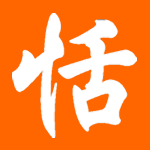http://search.barnesandnoble.com/bookSearch/isbnInquiry.asp?r=1&isbn=0762415983
http://a1204.g.akamai.net/7/1204/1401/04111212011/images.barnesandnoble.com/images/8640000/8644975.jpg
Thanks to several readers for emailing this gem in.
This "The Best Selling Translation" edition of 孫子兵法 (Sun Tzu's Art of War) on Barnes & Noble's website has all the Chinese characters mirrored on the front cover. Since Amazon.com, Borders, and Barnes & Noble all share the same database, similar image can be seen from all three online retailers' websites.
孫子 = Sun Tzu (also commonly written in pinyin: Sūn Zǐ) was the author of The Art of War, an immensely influential ancient Chinese book on military strategy (for the most part not dealing directly with tactics). He is also one of the earliest realists in international relations theory.
兵 = soldier, troops
法 = law, rule, regulation, statute


That's really embarrassing. I find it hard to believe that nobody at the publishing house noticed that before it went to press.
ReplyDeleteIf you check the 'Look inside this book' option on Amazon you'll get a correct version of the cover - very confusing.
ReplyDeletei assume they got the cover rite before they printed them, but they didn't bother sending out corrected press pictures.
ReplyDeleteI have seen that book in library, but correct version.
ReplyDeleteLOL!
ReplyDeleteBwahahaha! Reminds me of Time's Arrow by Martin Amis. Give this to Bush & Cheney: perhaps they'll end up reconstructing Iraq and then leaving it.
ReplyDelete"Are there any characters that become actual other words when reversed and are there any that are exactly symmetrical. If so would a sentence made of "mirror" image characters be considered a Chinese palindrome?"
ReplyDeleteThese are questions asked by my father when I showed him the picture of the book. I only recently became interested in the Chinese language, after an unexpected trip to China, and I do not have the knowledge to answer these questions for him.
Can you help? He is an English teacher, and is interested in other languages sentence rules and structures.
aaa, this is bad! I'd hate to make THIS mistake (i'm entering the printing field as a career) because not only would it be embarassing, but expensive.
ReplyDeleteI know enough to tell when Chinese and Japanese writting is upside-down or mirrored, but I doubt I'd be able to tell in other languages (such as Arabic or maybe Korean.)
Thank you so much, Glenn, for your promt reply! I suspected as much, but his questions dazzled me (I'd never think to ask such a thing) and had me curious, too.
ReplyDeleteI blogged a few Japanese palindrome-related things here, if you're interested.
ReplyDeleteThere's a Japanese seaweed/tea products company named 山本山 which is, if you follow Glenn's caveats about writing style, a three-character left-right palindrome, with vertical symmetry into the bargain -- and each character within it is itself vertically symmetrical. Now that is awesome.
On a side note, Yama-moto-yama (山本山) makes some tasy spicy nori (海苔). If you ever get a chance, give 'em a try. ;)
ReplyDeleteI would think that if I were a publisher that I would make sure that anything written in a diffrent language would be presented in it's proper manner. I know it's not a big deal that the characters are reversed but still I think it would be a common cortesy to at least do some research.
ReplyDeleteI have taken Chinese for around 4 years but have sadly due to life have fallen out of practice. I would love to get 火山女神 as a tattoo and I want to make sure that it means "Volcano Goddess"
Thank you Matt! I directed my father to your site.
ReplyDeleteAnon: 火山女神 does indeed mean "volcano goddess."
ReplyDeleteI've heard thai/chinese restaurants write their signs upside down to get attention, perhaps it's something like that. Not really appropriate in this context though, no "lice" here :D
ReplyDeleteBecareful, if 火山女神 is read from the wrong direction, i.e 神女山火, it could be intepreted as the prostitute (神女) forest fire (山火). Nancy, your dad may be interest in this one.
ReplyDelete